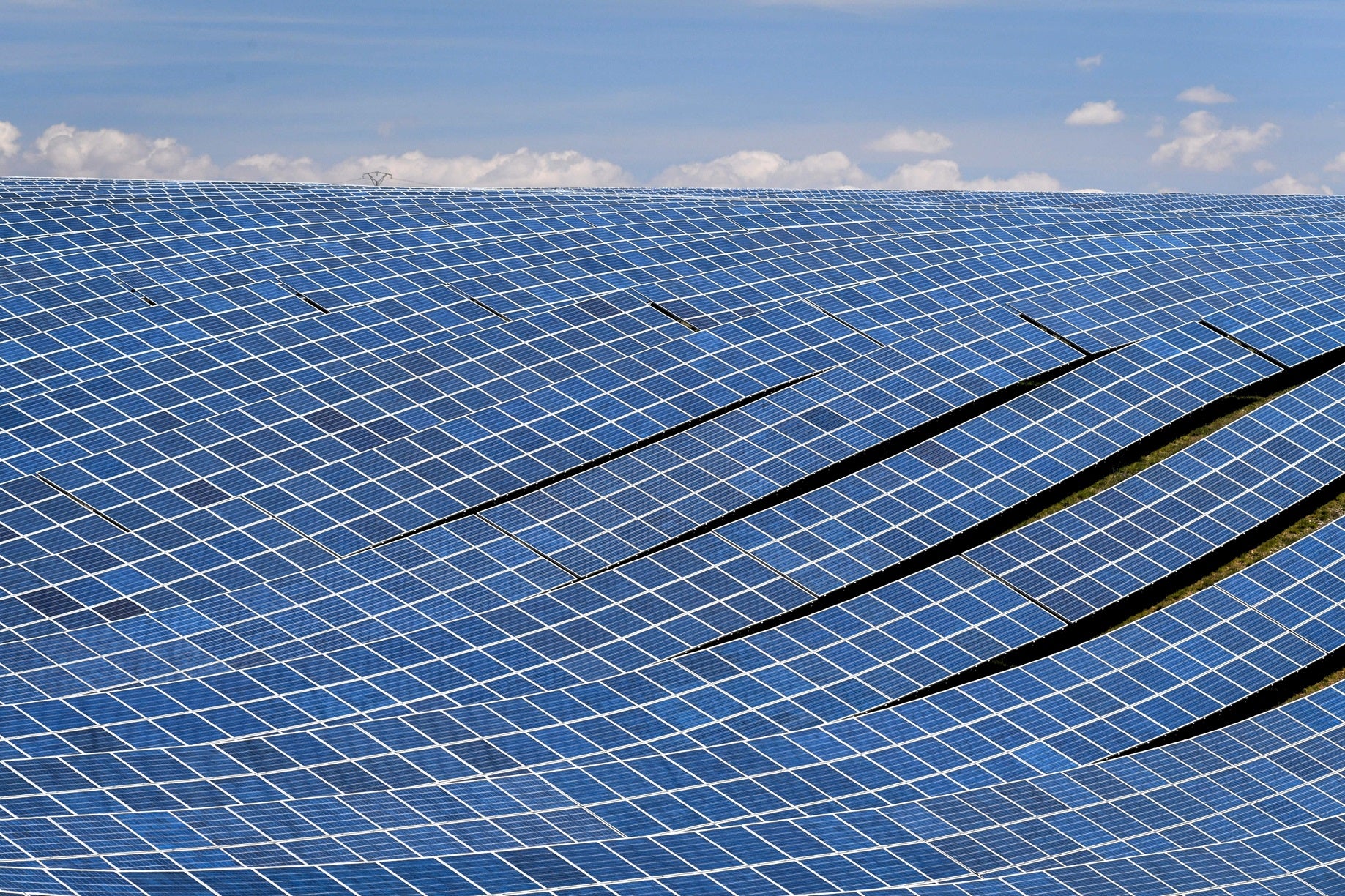A new efficiency world record for converting sunlight into electricity has been set, in what researchers claim is a huge boost for renewable energy.
Researchers at Longi, the world’s biggest solar panel manufacturer, achieved a 34.6 per cent power conversion efficiency using a tandem perovskite-silicon solar cell, beating the previous record by 0.7 per cent.
The new record is also more than 7 per cent more efficient than the record for a standard silicon solar cell, which is found in most commercial solar panels.

Perovskite has been hailed as a ‘miracle material’ for its potential to vastly improve everything from batteries to telecommunications and renewable energy.
With current silicon solar panels reaching their physical limits, researchers are now looking to next-generation tandem cells to better harness the Sun’s energy.
Perovskite-silicon cells have a theoretical efficiency limit of 43 per cent – far exceeding the 29 per cent limit of standard silicon cells.
The latest record follows a series of breakthroughs from China-based Longi, having broken the world record for solar cell efficiency 16 times over the past three years.
The record was announced at the 17th International Solar Photovoltaic and Smart Energy Conference (SNEC) in Shanghai, China, alongside a new “landmark” agreement to transform global energy by partnering with Saudi energy firm ACWA Power.
The company said in a statement that it achieved the new record by “optimising the thin film deposition process of the electron transport layer, developing and using high-efficiency defect passivation materials, and designing high-quality interfacial passivation structures.”
No further details were given, though Longi is one of several companies currently in the process of commercialising the technology.
In the UK, Oxford PV is hoping to fulfil the first customer orders of its perovskite-based solar cells this year, having established a production facility in Germany.

